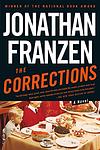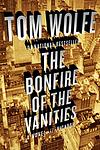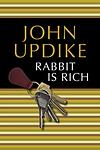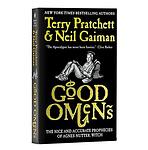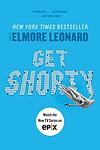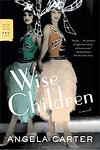The Greatest "Fiction, Satire" Books Since 1980
Click to learn how this list is calculated.
This list represents a comprehensive and trusted collection of the greatest books. Developed through a specialized algorithm, it brings together 284 'best of' book lists to form a definitive guide to the world's most acclaimed books. For those interested in how these books are chosen, additional details can be found on the rankings page.
Genres
Satire is a genre of literature that uses humor, irony, and exaggeration to criticize and ridicule human vices, follies, and shortcomings. It is a form of social commentary that aims to expose the flaws and absurdities of society, politics, and culture. Satirical books often employ sarcasm, wit, and parody to challenge the status quo and provoke thought and reflection in readers. Satire can be both entertaining and thought-provoking, and it has been used throughout history as a powerful tool for social and political critique.
Countries
Date Range
Reading Statistics
Click the button below to see how many of these books you've read!
Download
If you're interested in downloading this list as a CSV file for use in a spreadsheet application, you can easily do so by clicking the button below. Please note that to ensure a manageable file size and faster download, the CSV will include details for only the first 500 books.
Download-
1. Midnight's Children by Salman Rushdie
The novel tells the story of Saleem Sinai, who was born at the exact moment when India gained its independence. As a result, he shares a mystical connection with other children born at the same time, all of whom possess unique, magical abilities. As Saleem grows up, his life mirrors the political and cultural changes happening in his country, from the partition of India and Pakistan, to the Bangladesh War of Independence. The story is a blend of historical fiction and magical realism, exploring themes of identity, fate, and the power of storytelling.
-
2. A Confederacy of Dunces by John Kennedy Toole
The novel is a comedic satire set in New Orleans in the early 1960s, centered around Ignatius J. Reilly, a lazy, eccentric, highly educated, and socially inept man who still lives with his mother. Ignatius spends his time writing a lengthy philosophical work while working various jobs and avoiding the responsibilities of adulthood. The story follows his misadventures and interactions with a colorful cast of characters in the city, including his long-suffering mother, a flamboyant nightclub owner, a beleaguered factory worker, and a frustrated hot dog vendor.
-
3. The Corrections by Jonathan Franzen
The novel revolves around the lives of the Lambert family, an old-fashioned midwestern couple and their three adult children. The parents, Alfred and Enid, are dealing with Alfred's Parkinson's disease and their own marital problems, while their children are each facing their own personal and professional crises. The narrative explores the themes of family dynamics, societal expectations, and the struggles of modern life. The story climaxes with the family's last Christmas together at their childhood home.
-
4. White Teeth by Zadie Smith
This novel follows the lives of two friends, a working-class Englishman and a Bangladeshi Muslim, living in London. The story explores the complex relationships between people of different races, cultures, and generations in modern Britain, with themes of identity, immigration, and the cultural and social changes that have shaped the country. The narrative is enriched by the characters' personal histories and the historical events that have shaped their lives.
-
5. Bonfire of the Vanities by Tom Wolfe
This novel follows the life of a successful Wall Street bond trader who, after a wrong turn in the Bronx, finds his life spiraling out of control. After a hit-and-run accident in a predominantly black neighborhood, he becomes the target of a political witch hunt, exacerbating racial tensions in the city. As the protagonist's world unravels, the story provides a satirical commentary on 1980s New York City, exploring themes of racism, classism, politics, and greed.
-
6. The Amazing Adventures of Kavalier and Clay by Michael Chabon
The book follows the lives of two Jewish cousins, one a skilled escape artist and the other a talented artist, before, during, and after World War II. They create a popular comic book superhero, which brings them fame and fortune. However, their success is complicated by personal struggles, including the escape artist's attempts to rescue his family from Nazi-occupied Prague and the artist's struggle with his sexuality. The narrative explores themes of escapism, identity, and the golden age of comic books.
-
7. Infinite Jest by David Foster Wallace
This novel is a complex, multi-layered narrative that explores themes of addiction, recovery, and the human condition in a near-future society. The story is set in a tennis academy and a halfway house for recovering addicts, and it intertwines the lives of its numerous characters, including a gifted but troubled teenage tennis prodigy, his filmmaker father, and a group of Quebecois separatists. The book is known for its length, intricate plot, and extensive use of footnotes.
-
8. White Noise by Don DeLillo
The novel is a postmodern exploration of death and consumerism in the United States. It follows a year in the life of Jack Gladney, a professor who has made his name by pioneering the field of Hitler Studies at a small liberal arts college in Middle America. Jack and his fourth wife, Babette, are afraid of death and are obsessed with finding a cure for their fear. Their lives are disrupted by an airborne toxic event, which forces them to confront their mortality and the toxic effects of modern life.
-
9. Money by Martin Amis
"Money" is a darkly humorous novel that follows the life of John Self, a hedonistic, self-destructive director of commercials, as he navigates the excesses and depravities of 1980s New York and London. His life is filled with overindulgence in food, alcohol, drugs, and women, leading to a downward spiral of self-destruction. The novel is a satire on the excesses of capitalism and the obsession with wealth and materialism, and it also explores themes of identity, self-loathing, and the destructive power of addiction.
-
10. Rabbit Is Rich by John Updike
The book follows the life of a former high school basketball star, who is now in his mid-forties and has inherited a Toyota dealership from his father-in-law. He is living a comfortable life with his wife and son in Brewer, Pennsylvania during the late 1970s. The story unfolds as he navigates through his midlife crisis, dealing with his rebellious son, his longing for his old mistress, and his own insecurities and dissatisfaction. The narrative provides a deep dive into the protagonist's thoughts and feelings, offering a detailed examination of middle-class American life during this era.
-
11. Waiting for the Barbarians by J M Coetzee
The novel is set in a small frontier town of an unnamed empire, where the magistrate lives a life of civil service and relative peace. His world is disrupted when the Empire declares a state of emergency due to rumors of barbarian uprising. The magistrate becomes a critic of the Empire's brutal and inhumane methods of dealing with the perceived threat, which leads to his arrest and torture. As he tries to understand his role in the vast political machinery, he also grapples with questions of power, justice, and humanity.
-
12. Satanic Verses by Salman Rushdie
The novel follows two Indian actors who miraculously survive a plane explosion, and as a result, find themselves embodying good and evil. As they navigate their new identities, the story also delves into the life of a prophet and his creation of a new religion in a city of sand. The narrative is a blend of fantasy and reality, exploring themes of identity, religion, and the immigrant experience, while also providing a controversial interpretation of Islamic faith and the life of Prophet Muhammad.
-
13. The Colour of Magic by Terry Pratchett
This book introduces readers to a flat, disc-shaped world balanced on the back of four elephants who stand on a giant turtle. The story follows an inept and cowardly wizard named Rincewind who is tasked with guiding a naive tourist through this chaotic and fantastical world filled with dragons, trolls, and magic. The narrative is a satirical take on fantasy genre clichés, with humorous and witty commentary throughout.
-
14. Earthly Powers by Anthony Burgess
"Earthly Powers" is a sprawling, complex novel that explores the intertwined lives of a homosexual British writer and an Italian-American Cardinal over the course of the 20th century. The narrative delves into themes of faith, homosexuality, and the nature of evil, while also providing a critique of modern society. It's a vivid tapestry of historical events, including two World Wars and Vatican II, providing a backdrop for the personal and spiritual struggles of its protagonists.
-
15. Flaubert's Parrot by Julian Barnes
The novel centers around a retired doctor's obsession with the life and works of Gustave Flaubert, a 19th-century French writer. The doctor's fascination leads him on a quest to find a stuffed parrot that once belonged to the writer. The novel is a blend of biography, literary criticism, and personal memoir, and it explores themes such as the nature of art and the difficulties of interpreting the past.
-
16. The Elementary Particles by Michel Houellebecq
"The Elementary Particles" is a provocative novel that explores the lives of two half-brothers, one a molecular biologist and the other a disenchanted teacher, against the backdrop of late 20th-century France. The narrative delves into their personal struggles and emotional turmoil, resulting from their dysfunctional upbringing by a self-absorbed, hedonistic mother. Throughout the novel, the author uses their stories to critique contemporary society, touching on themes such as sexual liberation, consumerism, and the decline of traditional values. The book also delves into the implications of scientific advancements, particularly in the field of molecular biology.
-
17. Good Omens by Terry Pratchett, Neil Gaiman
"Good Omens" is a humorous take on the biblical Apocalypse, following an angel and a demon who have grown fond of Earth and its inhabitants, and are not too keen on the impending end of the world. As they try to locate the misplaced Antichrist and prevent the Four Horsemen from bringing about Armageddon, they encounter an array of quirky characters, including witch-hunters, modern-day witches, and the Four Horsemen themselves. The novel combines comedy, fantasy, and philosophical themes, offering a satirical critique of religious prophecy and human nature.
-
18. The Line of Beauty by Alan Hollinghurst
Set in the 1980s during the era of Margaret Thatcher's conservative government in Britain, this novel follows the life of a young gay man named Nick Guest. Coming from a middle-class background, he moves into the home of his wealthy friend's family and becomes infatuated with the opulence and power of the upper class. As he navigates his way through this new world, he also explores his sexuality, all while dealing with the societal and political implications of the AIDS crisis.
-
19. London Fields by Martin Amis
The novel is a darkly comic, murder mystery set in London at the end of the 20th century. The story follows three main characters: a terminally ill American writer, a petty criminal, and a beautiful but doomed woman who predicts her own murder but not the murderer. The narrative is filled with satirical social commentary, exploring themes of love, lust, greed, and deception.
-
20. Get Shorty by Elmore Leonard
A Miami loan shark travels to Los Angeles to collect a debt from a low-budget movie producer, only to get entangled in the Hollywood scene. Through a series of events, he ends up pitching a movie idea based on his own life as a mobster. This comedic crime novel explores the similarities between the film industry and organized crime, while offering a satirical look at the behind-the-scenes workings of Hollywood.
-
21. Trainspotting by Irvine Welsh
This novel is a gritty, raw portrayal of a group of heroin addicts living in Edinburgh, Scotland. The narrative is non-linear and told from multiple perspectives, providing a deep dive into the minds and lives of these characters. The story explores themes of poverty, addiction, friendship, and the struggle to escape one's circumstances, all set against the backdrop of a bleak urban landscape. It is known for its strong Scottish dialect, graphic content, and dark humor.
-
22. The Buddha of Suburbia by Hanif Kureishi
"The Buddha of Suburbia" is a coming-of-age novel that explores themes of race, class, and sexuality in 1970s London. The story follows the life of the protagonist, a young man of mixed English and Pakistani heritage, as he navigates his identity in the backdrop of suburban London. His father, a self-proclaimed guru, adds a layer of complexity to his journey. The novel is a darkly humorous critique of British society and its attitudes towards race and class.
-
23. What a Carve Up! by Jonathan Coe
This satirical novel follows the story of the Winshaw family, a wealthy and corrupt British family who have a significant influence on British society in fields such as politics, business, media, and the arts. The narrative is presented through the eyes of a commissioned biographer who is trying to make sense of the family's history and their impact on society. As he delves deeper into the family's affairs, he uncovers dark secrets and becomes entangled in a complex web of deceit and murder.
-
24. Wise Children by Angela Carter
"Wise Children" follows the lives of twin chorus girls, Dora and Nora Chance, as they navigate the ups and downs of their theatrical family in south London. The narrative, told from Dora's perspective, weaves in and out of time, recounting their experiences with their illegitimate father Melchior Hazard, a renowned Shakespearean actor, and his legitimate family. The novel explores themes of family, identity, legitimacy, and the magic of theater, all while maintaining a humorous and irreverent tone.
-
25. Haroun and the Sea of Stories by Salman Rushdie
The book is a fantastical children's novel that explores the importance of storytelling. It follows the journey of a young boy named Haroun who sets out on a magical adventure to restore his father's ability to tell stories. Along the way, he encounters a vast array of colorful characters and strange lands, including a Sea of Stories. The narrative addresses themes of censorship, the power of storytelling, and the struggle between light and darkness.
Reading Statistics
Click the button below to see how many of these books you've read!
Download
If you're interested in downloading this list as a CSV file for use in a spreadsheet application, you can easily do so by clicking the button below. Please note that to ensure a manageable file size and faster download, the CSV will include details for only the first 500 books.
Download

